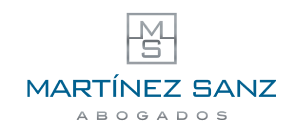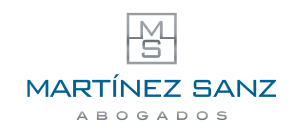At Martínez Sanz Abogados, as specialists in insolvency law, We know that one of the most common questions asked by our clients is: “Can I be repossessed if I am already in bankruptcy proceedings? The concern is logical: it is about protecting your assets, your salary or even your business in a situation of extreme vulnerability.
In this article we explain clearly and rigorously what happens with seizures once insolvency proceedings have been declared, what exceptions exist and how we can help you defend your rights.
The immediate effect of insolvency proceedings: suspension of attachments
When a court declares insolvency proceedings, one of the pillars of the procedure is triggered: the automatic suspension of individual executions. This means that creditors can no longer:
- Initiating new seizures
- Continue ongoing executive proceedings
- Taking measures against the debtor's assets without judicial control
This effect is set out in Article 142 of the Consolidated Text of the Insolvency Act (TRLC). Its purpose is to avoid a disorderly race among creditors and to guarantee equitable treatment under judicial supervision and that, in short, all creditors (except those legally privileged) suffer equally from the effects of the insolvency proceedings derived from the debtor's insolvency.
In practice, this means that if you are in insolvency proceedings, your assets are protected from seizure while the proceedings are pending.
But are there exceptions? Yes, and it is worth knowing about them
Although insolvency proceedings protect against most seizures, the law provides for some exceptions:
Enforcement of security interests (mortgages and pledges)
Creditors with a security interest (e.g. a mortgage) may be able to enforce their claim outside the insolvency proceedings. However, the judge may stay enforcement if the property on which the security interest is taken:
- Affects business continuity
- The asset is essential to the viability of the business.
- Each case requires a detailed technical and legal assessment.
Tax and Social Security
Public bodies may attempt to maintain administrative seizures and garnishments initiated before the insolvency proceeding, although numerous case laws limit them in order to respect the equal treatment of creditors.
It should be borne in mind that a lien does not confer a privilege in insolvency proceedings and, in fact, assets that may have been liened prior to insolvency proceedings will be sold free of liens in insolvency proceedings (whereas a different system applies to mortgaged assets).
Salary, accounts and assets: what happens to them?
If you are in competition:
- Garnishments of wages or pensions must cease, except for maintenance debts.
- The bank accounts are supervised by the insolvency administration, so that all payments must be duly authorised by the insolvency administration.
- No repossession of the principal residence may be initiated without judicial authorisation, except in the case of prior security interests.
In the event of a wrongful seizure, our lawyers at Martinez Sanz can request its suspension before the Commercial Court and demand its immediate lifting.
So what is the bottom line?
The declaration of insolvency is an effective legal shield against seizures, with very specific exceptions. It is a valuable tool for reorganise debts, The Commission shall, where appropriate, preserve assets and be eligible for a full discharge of unsatisfied liabilities.
At Martínez Sanz Abogados, we analyse your real situation, we advise you before you apply and accompany you through every stage of the process, defending your rights with the highest technical solvency and judicial experience.



